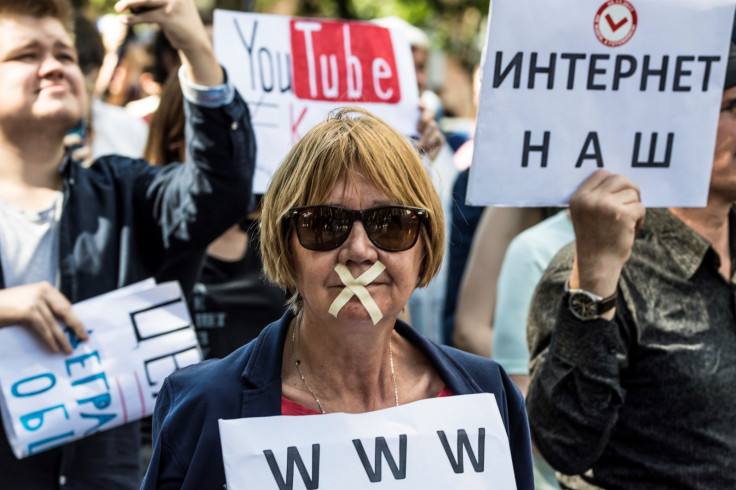Russia moves to ban proxy internet services, VPNs and Tor
The bill has reached the desk of President Vladimir Putin and is expected to become a law soon.

A bill that bans the use of VPNs, as well as anonymous browsers like Tor and online proxies, has been passed by the Russian parliament. It has now reached the president's desk where it will become law of the land once Russian President Vladimir Putin signs it.
The bill was passed on 21 July amid protests from the Russian public who took to the streets on 23 July in Moscow. Protesters demanded that the internet remains free and uncensored while also calling for the resignation of the head of Russia's state media regulator 'Roskomnadzor'.
Rights activists protested the recent crackdowns by the Russian authorities on free speech over the internet. The Russian government, however, is justifying the censorship arguing that it is battling extremist activity.
It was reported that the protesters numbered in the thousands and raised slogans akin to, "Truth is stronger than censorship", and "Free country, free internet".
The Federal Service for Supervision of Communications, Information Technology, and Mass Media, also known as the Roskomnadzor, will be tasked with creating and distributing a blacklist that contains all the sites that VPN (Virtual Private Network) service providers will have to block.
Emil Khalikov, one of the organisers of the protest, said, "One by one [the Government] is adopting odious, harmful laws that first they adopt — and then they think about how to put in place." Khalikov added, "Our goal is to get these repressive laws repealed, that limit our basic needs guaranteed by the constitutionn"
The bill will ban all forms of VPNs and proxies as well as the Tor browser, a browser that lets its users access any part of the internet, including the dark web anonymously. Along with the blanket ban over private internet usage, it is being said that private messenger services will also be banned. It was not long ago that Telegram was instructed to hand over their source code.
Sarkis Darbinyan, head of the Center for the Defense of Digital Rights, in an interview with the RFE/RL said: "This really does create problems for the connectivity of the Russian segment of the Internet and for access to services."
It is not uncommon for Russia to imprison or blacklist members of the internet community who post or speak against the official stance of the government. According to a Human Rights Watch report, recent laws and policies adopted by the Russian government under Putin "threaten the privacy and secure communications on the internet".
The report also makes a note of the fact that the government has, "unjustifiably prosecuted dozens" under criminal charges for their online activities and use of social media platforms. The Russian public is, according to the HRW report, "increasingly unsure about what is acceptable speech" and what will land them in prison. "State intrusion in media affairs has reached a level not seen in Russia since the fall of the Soviet Union."
Yulia Gorbunova, Russia researcher in Human Rights Watch, said, "These steps are taking place in an environment where there are no legal safeguards. He added, "There are no independent courts and a lot of these measures will be implemented without any judicial oversight."
The Russian government, on the other hand argues otherwise.
However, first deputy head of the presidential administration - Vyacheslav Volodin - in a press conference had said that, Russia went "along the path of self-regulation of the Internet" and there was more freedom on the internet in Russia than most other countries. "Think about where there is more democracy, we have them or them (USA)."
© Copyright IBTimes 2025. All rights reserved.





















